Playing Chess to Death
Readers,
This is a personal reflection on a topic that I believe needs to be discussed for the good of chess. While chess isn’t a physically violent encounter, there are times in which the tragic end of one’s life occurs during a game of chess. I explain this in the essay below. I hope this piece starts a serious discussion not one filled with crass jokes and puns.
Let’s begin!
Daaim Shabazz, The Chess Drum















“Chess is Life,” Bobby Fischer once asserted. This simple but profound statement may possess a deeper meaning when one understands that chess gives us so many lessons of life. Perhaps one’s career in chess may have its own independent life.
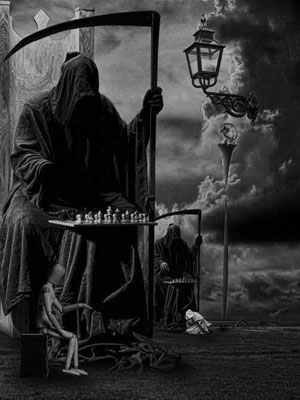
While we can choose to play chess until our last days, there are instances where it has literally happened to some. There are scenes from Ingmar Bergman’s movie The Seventh Seal where Swedish knight Antonius Block plays chess with Death. This movie was a historical fantasy, but how often does chess and death cross paths? I know of several people, afflicted with terminal illnesses, who have spent their last days enjoying chess. In other cases, the intersection of playing chess and death is unexpected.
Although rare, cases where players have died at the chessboard, do happen. Imagine the horrifying thought of your opponent being stricken at the board with an illness or overcome by asthma, stroke, or heart attack. There have been a few recent cases, but the first time it was brought to my attention was the death of Kurt Meier of Seychelles.
Tragedies in Tromso
At the 2014 Chess Olympiad in Tromso, Norway, Meier was playing for Seychelles, an island off the coast of Africa, when he collapsed at the board. His son Peter Meier was playing on the board one next to him while this was happening. Paramedics administered several rounds of CPR, but he was later pronounced dead at University Hospital North Norway (UNN). The death of the Swiss-born Seychellois was a heart attack. His opponent, Alain Patience Niyibizi of Rwanda, resigned graciously honoring his opponent.
.jpg)
Kurt Meier in action against Michael Webb of Bermuda at the
2014 Chess Olympiad in Tromso, Norway.
Photo by Daaim Shabazz
I was in the Olympiad press room when journalist Jaicy Odongo of Uganda came to me distraught and proceeded to tell me of the incident. It was indeed a tragic situation for the son, the wife (also on the trip), the Seychelles team, and his opponent. Tragedy struck twice when Alisher Anarkulov of Uzbekistan was found dead in his Tromso hotel room. While Arnarkulov was not in action, the deaths brought to light an issue that we may have overlooked.
U.S. Chess Cases
.jpg)
IM Emory Tate
September 26, 2015
Photo by Richard Shorman
Less than a year later, a person whom I knew died while competing. On October 17, 2015, International Master Emory Tate was playing at the Sam Shankland chess tournament in Milipitas, California. Tate and his opponent Yuan Wang were about an hour into the game when Tate went to the bathroom. When he emerged, he made his last command, “Call 911.”
Tate lost consciousness and crumpled to the floor to the shock of everyone in the room. After one of the chess parents administered CPR, paramedics rushed him to the San Jose Regional Medical Center where he was pronounced dead later that night. In March 2017, I released a biography of Tate titled, Triple Exclam: The Life and Games of Emory Tate, Chess Warrior.
The chess world still misses him to this day.
While researching the book, to my horror, I found out that USCF players who die while at the board are given a loss. I have talked to several directors, and they mention that it is what the ruling suggests because the game has started. Thus, the tournament director has to mark a definitive result. It implies that the player who died, abandoned the game. I disagree with the ruling, but the issue is NOT the director following the rules. It is the rule itself. Perhaps the human element of chess should reign supreme over a technicality.
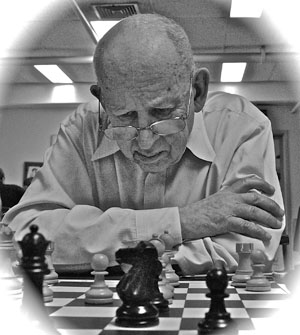

Harold Dondis
Photo by Steve Stepak
Months later, I inquired about the loss that Tate received for that game. It was the tournament director’s view that one that the surviving opponent “shouldn’t be penalized” and there was a mention of the Rule 28P. Another prominent director stated that all “games where one full move has been played meet the ratability requirement.”
We had even more recent examples with the passing of the legendary Harold Dondis during a tournament at the Boylston Chess Club. Bradley Scott Cornelius also passed away while playing at the 2018 U.S. Open in Middleton, Wisconsin. While I understand that the Tournament Directors are following the rules set forth by the U.S. Chess Federation, perhaps the organization and its delegates can come up with a more appropriate result than a loss. It is the person’s last act on earth.
Graceful Action
There are several ways a player can lose a chess game. They can resign, get mated, run out of time, or forfeit. Typically, when a player is stricken, the clock is stopped to deal with the situation. In the case of death or incapacitation, the game never continues. Time was frozen, and the game not completed. However, here was a post about an incident that happened in Canada (comment #49):
In an OTB tournament at UNB Fredericton, one of the players at a nearby table (NOT my opponent) had a heart attack right at the board. We stopped the clocks, called the emergency workers… and after they left with him, we started the clocks again.
He lost on time.
One of the top-ranked players said “He was losing anyway…” (link)
It would be callous to restart someone’s clock while they lie in the hospital fighting for their life or have already passed away. We understand that it was involuntary and of course they would have continued the game if able. Dying at the board is not the same as someone voluntarily abandoning the game because they intend to forfeit. Under the current rules, death at the board is treated in the same fashion, but there should be a distinction.
Someone on chess.com posted on the World Open case of a soldier who went “absent without leave” (AWOL) and the military police came to take him into custody. I cannot corroborate this story, but the author of the post said he was immediately forfeited instead of allowing his clock to run out. (link) While it is true that the soldier did not want to abandon the game, there was an adjudication due to the extreme circumstances.
I believe that as a chess body, U.S. Chess should display compassion in these cases of death of a player during an active game. The last honorable act a person performs in life is playing a game of chess. Imagine if an 8-year old girl dies of an asthma attack at the board and the director marking it as a loss. We would all be heartbroken and most likely would find ways to console the parents and honor that child. If one feels just a tinge of regret for marking a loss, then the ruling should be revisited.
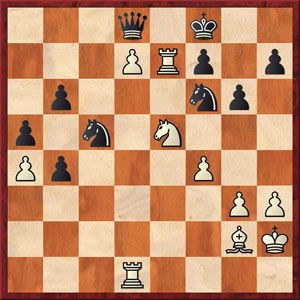

Karapanos was poised to play 37.Rxf7+ when he had a heart attack and died.
I will cite one last case. During the 2009 Acropolis International in Greece, Nikos Karapanos was playing white against Dan Zoler. Karapanos had developed a winning position and was poised to play the winning move. At that point, Karapanos suffered a heart attack and Zoler, a medical doctor, rushed to aid his opponent. Zoler assisted Karapanos until the ambulance arrived, but Karapanos later died. As the arbiter was poised to award Zoler with the win, he immediately objected, resigned the game and withdrew from the tournament.
What’s the Best Move?
Perhaps there is something we can do to ensure that a decedent is given a more favorable outcome than to have the last act of their life (and chess life) recorded as a loss. They did not voluntarily abandon the game. The surviving opponent, of course, can request to resign the game (as in Meier and Karapanos games), but I also feel they could get an option on the adjudication of the game.
Asking the opponent (in a careful way) gives the surviving player a chance to think about it. If they choose a win, they would understand that their deceased opponent will receive an asymmetrical result (a vacated result, not a loss) and may feel less guilty for accepting a win. Others may agree to a draw or may resign to give the player a symbolic tribute. In thinking of this, it is appropriate that players who die while competing be given a proper adjudication, AND a commendation.
How Did They Die?
When sharing one’s life with others, there is an inevitable question, “How did they die?” In the above cases, the eternal answer will be, “He/She died of (cause of death) while playing in a chess tournament.” While the circumstances are sad, the deceased player still has a chance of showing their joy of chess and perhaps encouraging someone to take up the activity. This posthumous act is undoubtedly worth honoring. Most everyone will want to do what they enjoy doing until their last days. Only a few will get that honor. Let’s honor those that do.
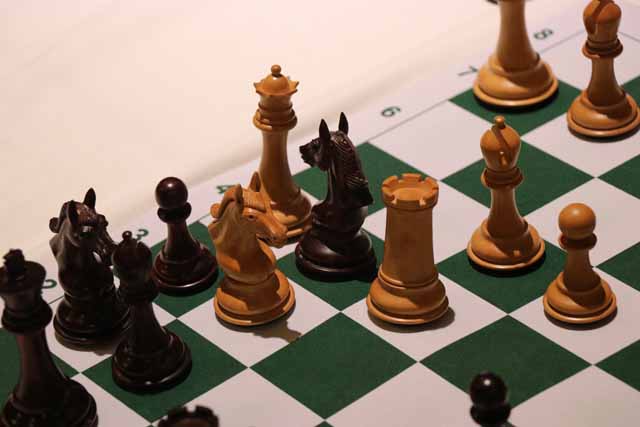























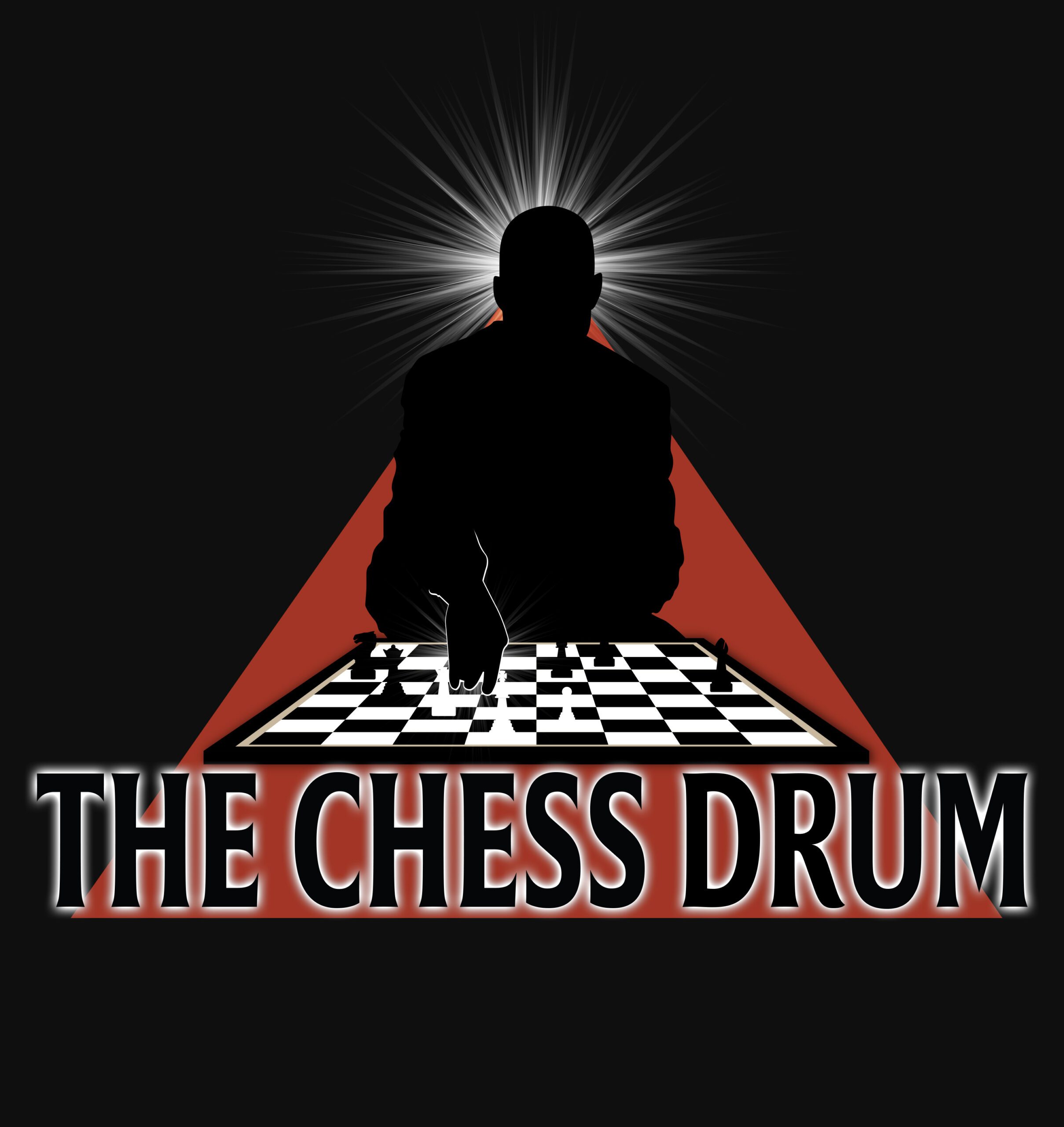
Interesting and a serious conversation for the near future! New rules should be incorporated.
Agreed and well written as always Daaim, thank you for bringing attention to this matter.
I attended the Rules Committee of the U.S. Chess Federation on today and brought up this issue. There were several tournament directors in the room and several stated that it was possible to have an asymmetrical result. However, it could not be made into a rule, but only left to the discretion of the tournament director. For example, if the director wants to give the surviving player a choice of which result to choose, they can.
My condition was that the deceased player should not get an “L” or zero. One director stated that current technology allows U.S. Chess to assign a 1-1 result (or a double win). There can also be a win for surviving player and an “unplayed game” for the decedent. I still have to appeal to the tournament directors and hope they will comply with submitting the request. I believe there should be something that U.S. Chess does as a tradition for players who “die in action.”
In the Bradley Cornelius case, his death took place in the last round creating a chaotic situation since many had to take flights back to their cities and prepare for work the following day. Players had to make a decision to leave or stay, but the organizers may have provided an option of what to do with your game if you decide you have to catch your flight.
In addition, if players were in the running for a prize and have to forfeit due to round delays that is the worst case. Many forfeited and there were serious complaints about the delays, but there was nothing the organizers could do since the coroners had banned everyone from the hall for several hours. USCF should have some type of procedures in place in the event of a tragedy… death in the hall, natural disasters or power failures. What happens in these cases?
GM Ziaur Rahman Dies After Stroke During Game In Bangladesh Chess Championship
https://www.chess.com/news/view/grandmaster-ziaur-rahman-dies-heart-attack-game-bangladesh
Ziaur Rahman at Chess Olympiad
Video by ChessBase India